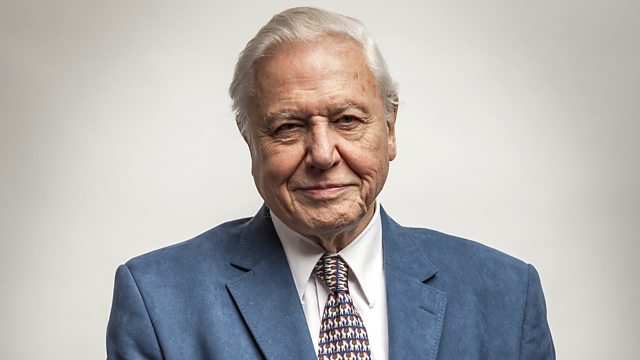
David Attenborough and the Natural History of Folk
David Attenborough recalls his early TV career, producing Song Hunter, a traditional music series presented by Alan Lomax, and how these influenced natural history programmes.
Another chance to hear ... David Attenborough is renowned for his bringing spectacular nature into the nation's living rooms. But his first television series, broadcast 60 years ago, was quite different - and yet not unrelated. As a young producer Attenborough made 'Song Hunter', six programmes presented by the American folk music collector, Alan Lomax (who had recorded Leadbelly and Jelly Roll Morton) in which traditional musicians from all over Britain and Ireland sang and played.
'Song Hunter' was broadcast live so no longer exists. But Reg Hall saw the programmes on the base where he was doing his National Service. This was a life changing experience and he went on to work with and record several of the musicians featured. Prompted by such recordings, David Attenborough recalls the trials and wonders of the enterprise: how, seeking to book the great Traveller singer Margaret Barry, the production office called police stations throughout Donegal asking them, when next Barry was brought in drunk and disorderly, to let her know there was a ticket to London, a television appearance and a fee ready for her. How Lomax blew the budget bringing half a dozen women from the Hebrides to perform their tweed waulking songs. How he had to battle with Βι¶ΉΤΌΕΔ bureaucrats for permission to let the musicians drink beer while on the air.
At this time the Corporation was engaged in a great endeavours, the Βι¶ΉΤΌΕΔ Folk Music and Dialect Recording Scheme. Peter Kennedy, Seamus Ennis, Hamish Henderson and Bob Copper were employed to gather songs, tunes, tales, customs and dialects. They travelled all over Britain and Ireland and recorded 700 people aged from 6 to 96. Some these turned up in 'Song Hunter'.
So Attenborough's career began with folk music. More than this, the way that the material was gathered - searching for, finding, waiting and recording people in their natural environment - has much in common with the way that, to this day, natural history programmes are made.
Some of the personnel and the equipment overlapped. Peter Kennedy did pioneering work recording birdsong with the parabolic microphone he used for recording musicians. The Βι¶ΉΤΌΕΔ issued LPs of folksong and LPs of birdsong made by the same people, with the same gear, sharing the same office.
David Attenborough recalls those days, as do Bob Copper and Peter Kennedy in previously unbroadcast recordings. Chris Watson, who works with David Attenborough today, considers the parallels of natural history sound recording and the collecting of music. And, to David Attenborough's delight, there is remarkable music by some of the people he first broadcast 60 years ago in 'Song Hunter'.
Producer: Julian May.
Last on
Broadcasts
- Wed 12 Feb 2014 22:00Βι¶ΉΤΌΕΔ Radio 2
- Wed 6 Aug 2014 22:00Βι¶ΉΤΌΕΔ Radio 2
- Wed 29 Mar 2017 23:00Βι¶ΉΤΌΕΔ Radio 2
